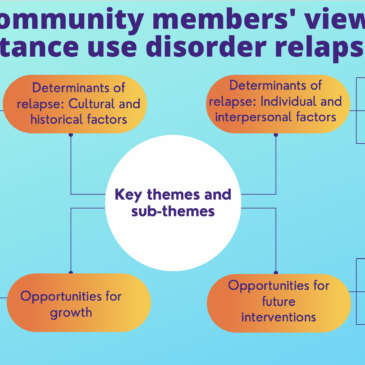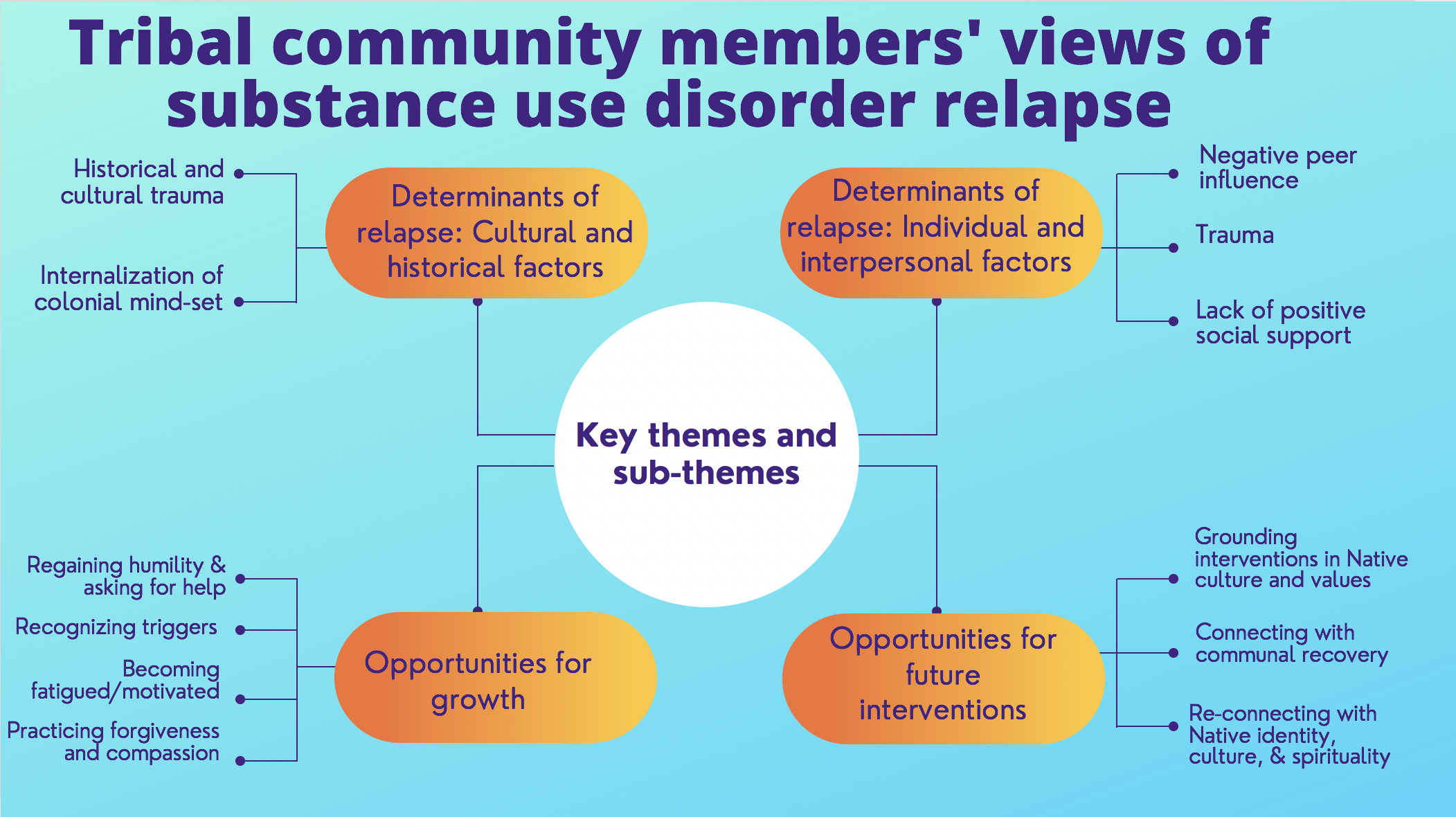Did you know that Native Americans have the highest COVID vaccination rate of any racial/ethnic group in the United States? Tribal peoples’ urgency to get vaccinated probably results from many factors, including high infection and death rates. Another important cause is the strong sense of being interconnected with one’s community members, as reflected in the Tribal imperative to “be a good relative.” This mindset extends to other health conditions, including addiction. For that reason, when Monica C. Skewes and her colleagues chose to study Tribal perspectives and priorities regarding substance use disorder (SUD) relapse, they made a point to learn the views of diverse community stakeholders, including cultural leaders, SUD treatment providers, people with SUD, and affected family members. Today, we describe their study.
What was the research question?
On this particular American Indian reservation, how do diverse community stakeholders view substance use disorder relapse?
What did they do?
This research was located on a rural American Indian reservation with high rates of SUD and limited opportunities for treatment. Following the principles of community-based participatory research, Skewes and colleagues formed a Community Advisory Board composed of community leaders. The Community Advisory Board nominated the study participants, who were 35 adult reservation residents representing cultural leaders, SUD treatment providers, people with SUD, and affected family members. Focus group questions elicited participants’ perceptions about substance use and relapse, including what triggers relapse, what actions people should take following relapse, how to prevent relapse, and how cultural traditions or practices could be woven into relapse prevention programs. The researchers used a grounded theory approach to make sense of the data.
What did they find?
There were four main themes. First, participants viewed cultural and historical forces, including historical trauma and internalization of a colonial mindset, to be one kind of cause of relapse. Second, beyond these cultural/historical determinants of relapse, participants pointed to individual and interpersonal causes, including negative peer influences, lack of positive support from family and friends, and childhood trauma. Third, participants tended to see SUD relapse as an opportunity for growth, particularly to the extent that it prompts the affected person to regain humility and ask for help, learn to recognize triggers, strengthen their commitment to recovery, and practice forgiveness and compassion. Finally, participants believed that future relapse prevention interventions should be grounded in Native culture and values, encourage a stronger connection with one’s Native identity, and encourage people to see SUD recovery as a communal process, rather than an individual one. The Figure below provides the major themes and sub-themes.
Figure. Tribal community members’ views of substance use disorder relapse. Click image to enlarge.
“I think our culture is the way . . . I think harm reduction is great, and I think that our culture is a perfect example of harm reduction . . . I think that every sweat [ceremony] we go in is harm reduction. Every time we pray is harm reduction. Every time we raise our pipe is harm reduction. And I think that we have to start thinking like that, that everything we do carries energy.” – Cultural leader interviewed as part of Skewes et al.’s study.
Why do these findings matter?
Like the site of this study, many Tribal communities are deprived of public health resources and lacking in evidence-supported SUD interventions. The findings from this study could inform the development of relapse prevention programs that are grounded in Native culture and values. This particular research team has developed a curriculum that incorporates family support, cultural lessons, and Native spirituality. Other Tribal communities might wish to develop their own such interventions or adapt already-existing ones, to harness the power of Native interconnectedness and resilience.
Every study has limitations. What are the limitations of this study?
Participants were not sampled at random, so we cannot be sure that their views accurately represented the views of the community more broadly. Also, it is possible that members of other Tribal communities hold different views about SUD relapse.
For more information:
The Substance Abuse and Mental Health Services Administration offers resources and links to organizations and articles that American Indian and Alaska Native communities can use to promote mental wellness. For more details about addiction, visit our Addiction Resources page.
— Heather Gray, Ph.D.
What do you think? Please use the comment link below to provide feedback on this article.





